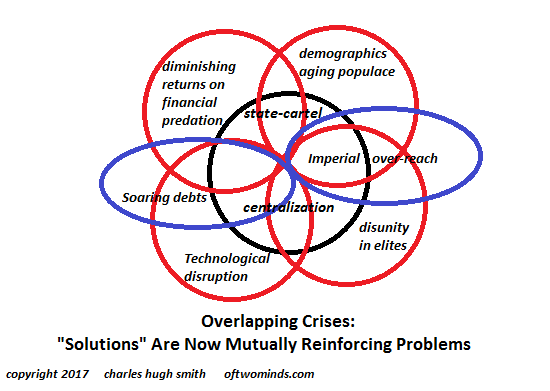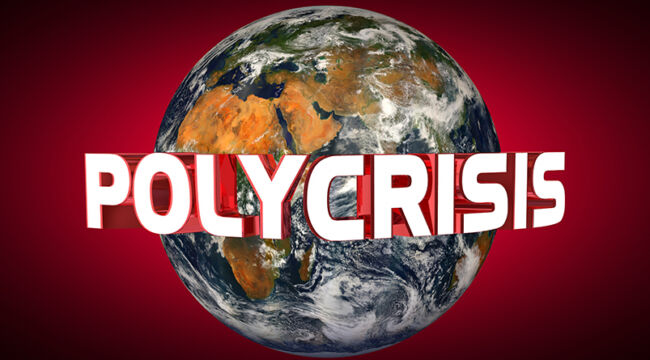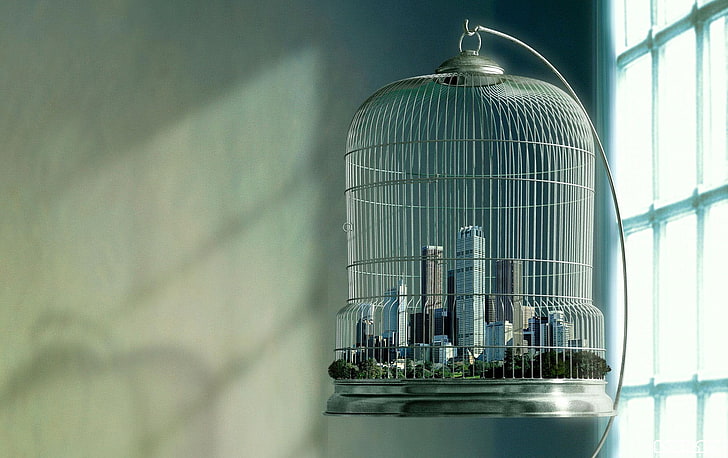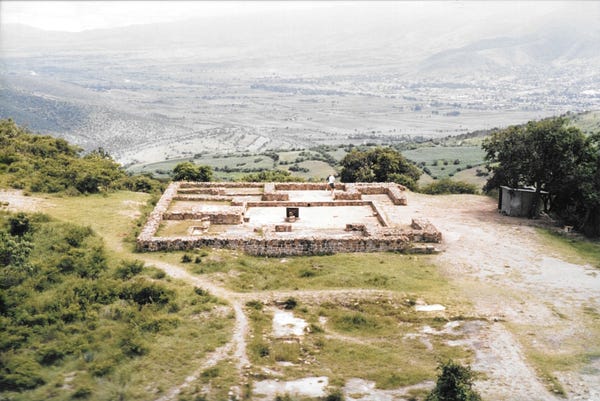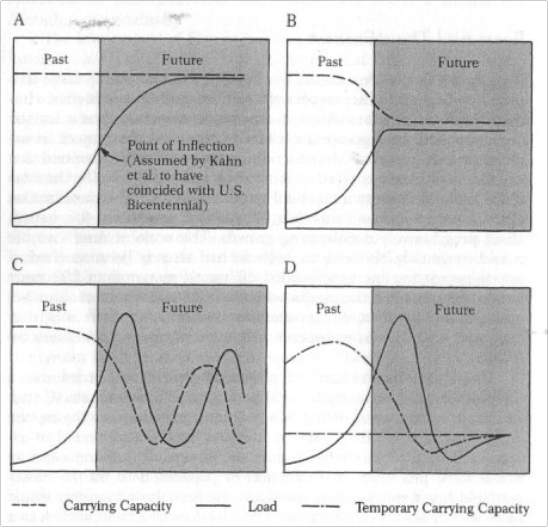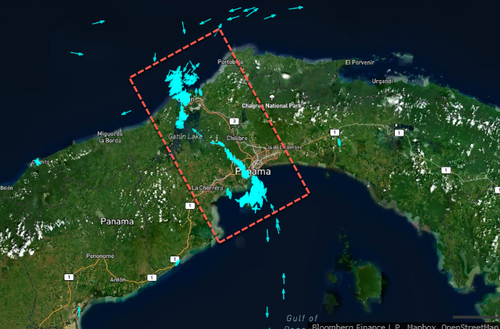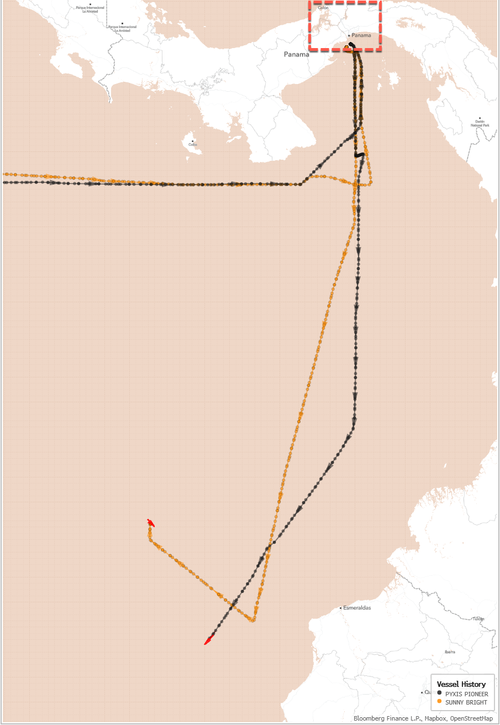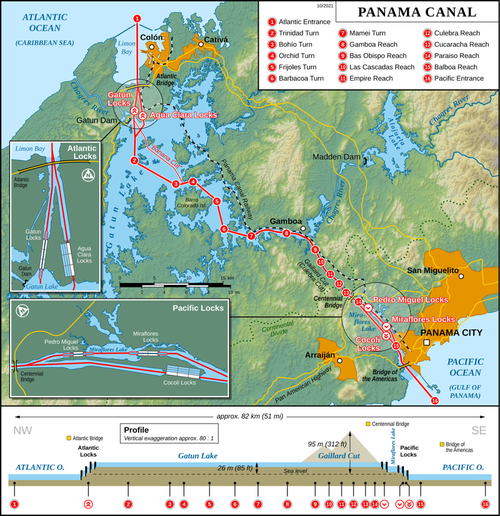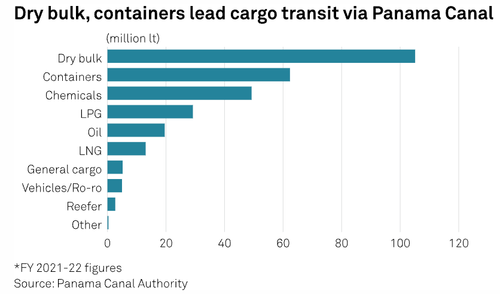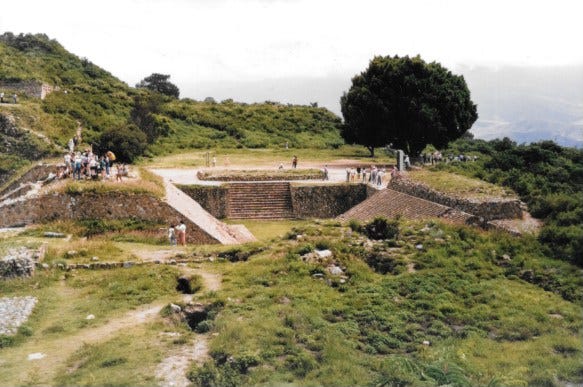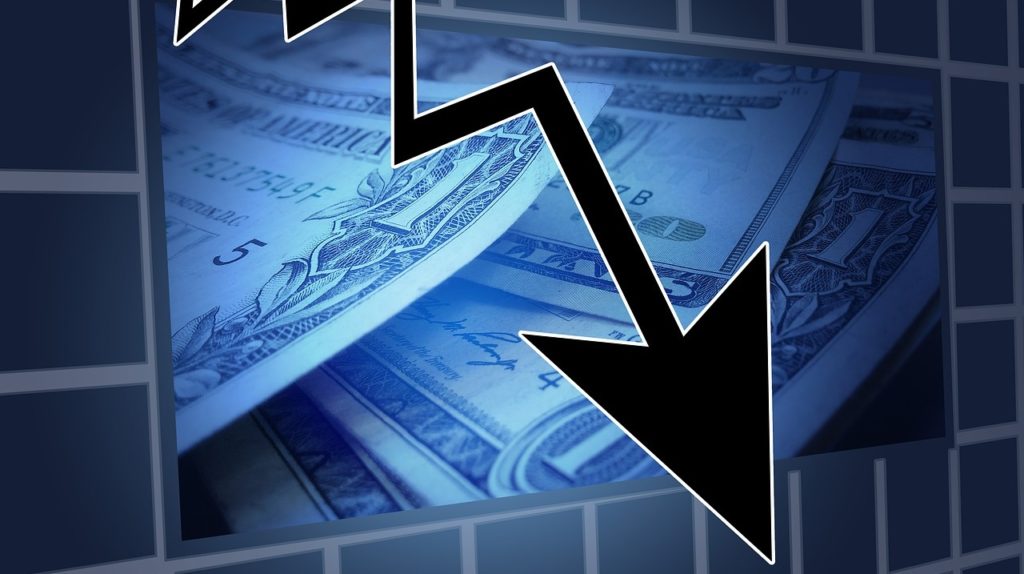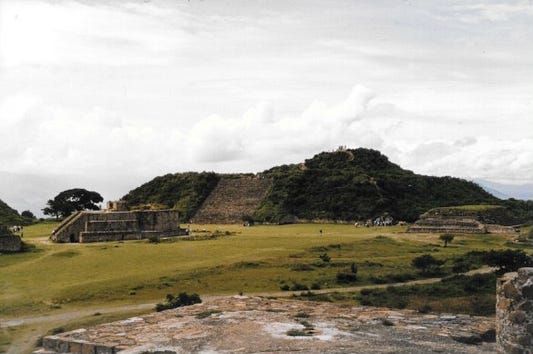Question: Tonight I watched a stunning 12-yr.-old documentary (HOME) on the impact of human enterprise on Earth — the horrific toll on nature, fossil-fuel insanity, ticking food and population time-bombs, climate change, sea-level rise imperilling billions, extinction rates to the sky, all with gorgeous photography (and with an extraordinary array of financial backers). It ended on the notes, “It is too late for pessimism” and “We have ten years to…”, along with beautiful panoramas of our planet and a sampler account of projects that offer solutions and hope.
Finally, there was the invitation to, “Come and join us” at www.ourgoodplanet.org. I went there, but found… “Site cannot be reached”.
So, is it too late for pessimism? What do you think?
Response: The statement that “It is too late to for pessimism” has been attributed to motivational speaker Les Brown and implies that we need optimism rather than pessimism. That we need ‘solutions’ not more talk about the ‘problems’. That if we try hard enough, we can accomplish anything regardless of limitations.
I am not so convinced these motivational thoughts are true or relevant for the challenges humanity is increasingly having to confront due to life on a finite planet. Imagining a ‘better’ world is much, much easier than actually creating one, especially if there are biophysical limits to what can be accomplished or that have been vastly breached — let alone reaching ‘consensus’ on what is ‘better’. The ‘positive’ thoughts such hopeful beliefs can instil may lead people to feel better but they can also lead to inaction or clinging to misleading ‘solutions’; both of which I would argue are occurring to some extent and perhaps holding us back from discussing more appropriate responses that may result in ‘better’ outcomes.
I would suggest there are two other perspectives in viewing our impending dilemmas that need to be considered. First, perhaps what we are facing are not problems that have solutions but predicaments that we cannot avoid and the best we can do is mitigate to a certain extent the consequences of. Second, if these are problems with solutions, it becomes even more problematic if the solutions we pursue are wrong or misguided for our solutions may be painting us further into a corner we cannot extricate ourselves from and then end up as predicaments without solutions.
Given these alternatives there is no simple answer to your question as there are so many complexities and intertwined issues that could be raised and I could certainly respond with a very long essay, which this may end up being. I will try to be relatively concise in my response, although I’m sure to go off on a variety of tangents. It’s taken some time to respond as I wanted to watch the documentary first (and it helps that it’s raining and I can avoid getting to some outdoor work in my gardens; I typically just spend an hour or two first thing in the morning on my computer as I’m enjoying a couple of cups of coffee before moving into my ‘chores’, and then occasionally sit back down for a few moments here and there through the day to give my aging body a bit of a rest from the physical labour of maintaining and expanding our fruit/vegetable gardens and, unfortunately, I am not getting any younger).
While I don’t disagree with the vast majority of the analyses regarding humanity’s dilemmas presented in the documentary, there are some issues in its conclusion that I will elaborate on below. There is certainly much to be pessimistic about given its content, but one could just as easily be optimistic depending on one’s focus and interpretation so let’s try to avoid such ‘emotional’ descriptors for now and focus on what’s ‘real’ as much as I’m loathe to use such a term for what is ‘real’ to one person is not necessarily to another and almost everything is open to debate.
The assertion that humanity has no more than ten years to reverse the trend of runaway global warming (with the release of methane locked in northern permafrost) due to carbon emissions so we have to abandon fossil fuels posthaste seems to have been an ill-advised one to make. The timeline presented has passed so given we have not halted such emissions but seen them expand (see here) as humanity’s energy demands have continued to increase, and outpaced any energy so-called non-carbon emitting sources can provide, one could say it is too late to be pessimistic but also too late to be optimistic; we are in deep trouble as we missed the window of opportunity to correct our behaviour if that assertion is correct.
These type of catastrophic predictions are I believe somewhat problematic as it provides opportunities for critics to highlight faulty assertions when the timeline passes. Could it be runaway global warming will take place sometime in the future due to positive feedback loops? Sure, maybe. Only time will allow us to say for sure, and only in retrospect. More general and probabilistic ‘warnings’ or even various possible scenarios as presented in The Limits to Growth might be better at persuading people to alter behaviour; I don’t know, although it doesn’t appear either approach has been overly effective in slowing our exploitation of fossil fuels or any other finite resource for that matter.
What I do believe, however, is that no one, absolutely no one can predict the future with any accuracy. The significant trends being discussed may possibly continue but life has a way of going sideways sometimes so projecting patterns forward and providing such timelines almost always end up being quite wrong. Complex systems with their nonlinear feedback loops and emergent phenomena can neither be predicted or controlled, and just the tiniest error in underlying assumptions can result in significantly different pathways being followed and eventual outcomes being quite changed from predictions.
After more than an hour and twenty minutes (the vast majority of the film) of laying out the dilemmas humanity faces due to its expansion and overexploitation of limited and finite resources, the documentary presents its ‘solutions’. Many are cherry-picked examples of small scale shifts that ignore the significant countervailing forces and system momentum that limit their widespread application. Some are experimental approaches with little to no chance of adoption due to their economic/resource ‘costs’ with little benefit, if any, in return.
The most problematic one, I would contend, is the idea that fossil fuels can be replaced by ‘alternatives’ that are misleadingly termed ‘renewable’ and, for the most part, business as usual can proceed — especially for so-called ‘advanced’ societies. Sure, some minor tweaks here and there by ‘thinking’ about what is consumed but little else.
This energetic shift ignores the hard biophysical limits that exist on a finite planet and the negative consequences of ‘renewable’ energy production, maintenance, and after-use disposal issues — to say little about the energy storage issues. It’s one thing to suggest we simply transition from fossil fuels to ‘renewables’, it’s quite another to acknowledge the: dependency of such ‘renewables’ on fossil fuels in perpetuity (especially the mining and industrial processes required) and other finite resources (particularly rare-earth minerals); energy storage limits; ecological destruction generated in the construction/storage/disposal processes; intermittency of power produced and thus need for fossil fuel or nuclear backup systems; significantly lower energy-return-on-energy-invested; etc.. ‘Renewables’, in my opinion, are no solution and their use as one is primarily a comforting story that conveniently avoids the difficulties (impossibilities?) of their widespread adoption.
In fact, I find it immensely interesting that the documentary lays out a great argument for our fundamental dilemma, ecological overshoot, and the most probable best ‘solution’, degrowth, but fails to raise either issue at all. Instead it focuses its proposed ‘solutions’ on human ingenuity, creativity, education, and technology — the mainstream ‘answers’ that I would argue are wrong because these tend to be or are significantly dependent upon energy-intensive processes and finite resources (especially the technological ones). And I’m tending to believe these ‘solutions’ are pursued because they promise little disruption, provide hope (which people prefer over despair, even if it’s false hope), and serve to enrich those that control the resources, production processes, and the financial capital that would be required to fund them.
Despite there being limits to projecting trends into the future with much if any accuracy, there are some patterns to human complex societies that do seem recurrent; at least with all the experiments in them for the past 10 millennia or so. All our complex societies to date have blossomed in complexity, peaked, and then reverted to a far more simple form (what some would call ‘collapse’).
Archaeologist Joseph Tainter argues this is primarily due to the economic phenomenon of diminishing returns on investments in complexity. As problem-solving organisations, complex societies address problems via increasing investments in complexity that are supported via resource surpluses. But resources, being finite in nature, encounter diminishing returns themselves on their procurement; that is, more and more ‘investment’ (in terms of energy, labour, and resources) must be made to increase or sustain them because of our tendency to access and exploit the easiest-to-retrieve and easiest-to-transport ones first, moving one to the harder-to-retrieve and transport ones later. As the resources become more difficult to procure, surpluses begin to shrink and are increasingly needed to meet everyday needs. If surpluses disappear, their lack of availability and support during a time of stress, that might otherwise have been dealt with quite well, can overwhelm a society and lead to its ‘collapse’ (an economic choice by its people to stop supporting its complexities, especially in the sociopolitical realm, and choose a more simple lifestyle due to the cost/benefit ratio dropping significantly).
It may indeed be ‘pessimistic’ to take this thesis and apply it to today’s global, industrial complex society that is almost entirely dependent upon fossil fuels. Combine this idea with the concept of ecological overshoot (which is really at the root of all our dilemmas) and one can’t help but feel despondent.
I have come to believe the only ‘solution’ to these dilemmas is to embrace degrowth as quickly as we can. A return to ‘simpler’ living ways that do not depend on long distance supply chains and are far, far less energy intensive is very likely in the books for us regardless of whether we wish it or not. So, rather than attempt to waste what remaining resources we have in what I would argue are cognitive dissonance-reducing narratives that serve primarily to comfort us and keep us in denial, and would probably be a final blow-off top of finite resource exploitation pushing us completely over the impending cliff, we should dedicate our labour and resources to relocalising the most important things: potable water procurement, food production, and shelter needs. And we need to do it in a way that makes our local communities resilient and minimises (to zero if possible) the necessity of long distance supply chains and finite resources.
The fact that our lifestyle would require significant sacrifices (especially for those of us in so-called ‘advanced’ economies) of the many technological conveniences we currently have and much more manual labour is probably why most people rail against it, either via denial (the first stage of grief) or crafting of more comforting narratives such as transitioning to alternative forms of energy to support our current ways (the third stage of grief, bargaining). What we need is a tipping point of people to move through the grief stages as quickly as possible to the final one, acceptance, and embrace the idea that we need a whole new approach to how we live. And that approach, as far as I can see, is to embrace a more simple living arrangement as soon as possible, especially for ‘advanced’ economies whose relatively small populations consume and depend upon the vast majority of finite resources, and become as self-sufficient as possible (the ideal would be complete self-sufficiency).
Again, this interpretation of our complexities may be viewed as pessimistic by those who would rather cling to the hope of humanity being able to solve our dilemmas. We are a relatively ‘smart’ and ‘creative’ species but all of pre/history would suggest there are hard limits to what we can do. Having constructed an intertwined and global complex society almost exclusively dependent upon a finite resource that has encountered increasing diminishing returns, and having no true replacement that can address some of the knock-on, negative consequences of our burgeoning expansion and exploitation, I would contend we cannot ‘science’ our way out of this. Believing otherwise is, in my opinion, about our predisposition to avoid ‘pain’ and seek ‘pleasure’. We don’t want to confront the difficulties (pain) ahead so we craft narratives that paint a more ‘pleasurable’ outcome and people are far more likely to cling to the ‘optimistic’ story (even if it’s wrong/misleading) than the ‘pessimistic’ one as a result.
Do I know what is going to happen in the future? Absolutely not.
From where I sit ‘collapse’ would seem to be virtually guaranteed sometime in the future. This return to simpler ways of living may be just around the corner or it could be decades/centuries from now; no one knows, certainly not me. And how it all unfolds is anybody’s guess, but when it occurs it may do so relatively quickly especially if our power grids fail and our technologies become virtually useless.
And I haven’t even delved into the economic aspects of our upside down world. The hundreds of trillions of dollars of leveraged bets and debt bouncing around the Ponzi-type structure of our economic/financial/monetary systems. The fact that most of the ‘growth’ of the past few decades has been built almost entirely on debt which could be viewed as ‘borrowing’ from the future; a future with highly uncertain prospects and certainly less resources to pay back this debt. Or the geopolitical instabilities that seem to be increasing as nation states compete for control over limited and dwindling resources and remaining market share wealth.
I know a lot of people believe they can affect positive change via our political systems but I am not one of them. I have no faith in the systems nor hold the view that citizens have any real agency via the ballot box. Pre/history suggests to me that our sociopolitical systems, that tend to always reflect what the ‘ruling class/elite’ want, are part and parcel of the problem. The ‘elite’ of any society are primarily motivated by a wish to control/expand the wealth-generating systems that provide their revenue streams. Their attempts to solve social problems always put their primary motivation at the forefront. All other concerns are at best secondary/tertiary.
Pessimistic? Maybe, but like most I like to believe I am being ‘realistic’. I spend more and more of my time and energies building resiliency and self-sufficiency into my living arrangements so that as society’s ‘solutions’ to problems falter (and likely make things worse), my family (and hopefully community — but I’m not holding out much hope for my town as its council has been chasing and continues to chase the perpetual growth chalice with increasing fervour it would seem, having increased its population and footprint some 300% in the 25 years I have lived here — growing from 18,000 to almost 50,000 and still going) will be able to weather the coming ‘disruptions’.
I interpret my approach as actually somewhat ‘optimistic’ and focused on what I personally can control because if we are being honest with ourselves, most of what is occurring is well beyond our personal control, and probably even collective control. And if we’re dealing with ‘emotional’ responses to our social and physical environments, the only thing we can control is our reaction. Ultimately we all see what we want to see, we all hear what we want to hear, and we all believe what we want to believe.
Although we like to believe otherwise, ‘facts’ (if we can even agree on what these are) rarely, if ever, play a role. And even though I often phrase my comments/thoughts as definitive assertions, I, like everyone else, really don’t know what the future holds. I can only guess based on the evidence before me and through all the biases I carry with me that impact my interpretation/processing of it. Mine is a story/narrative like any other that serves to try to make sense of an exceedingly complex universe and world. So, don’t necessarily take my word for what is occurring or what might happen in the next few years/decades/centuries but do your own research and evaluation of the evidence.
There is more I could ramble on about but this is already much longer than I intended as I warned might happen.
Here are a handful of useful sites/blogs/books/notes to peruse (presented in alphabetical order of link title):
Mike Stasse’s Damn the Matrix
Degrowth
Alice Friedemann’s Energy Skeptic
Dan Gardner’s Future Babble
Charles Hugh Smith’s Of Two Minds
Gail Tverberg’s Our Finite World
Dr. William Catton Jr.’s Overshoot
Dr. Chris Martenson’s Peak Prosperity
Erik Michaels’ Problems, Predicaments, and Technology
Kurt Cobb’s Resource Insights
Dr. Joseph Tainter’s The Collapse of Complex Societies
Dr. Ugo Bardi’s The Seneca Effect
Dr. Donella Meadows’ Thinking in Systems
Cognitive Dissonance’s Two Ice Floes
You can get many more links to resources and sites via my own website: Olduvai.
